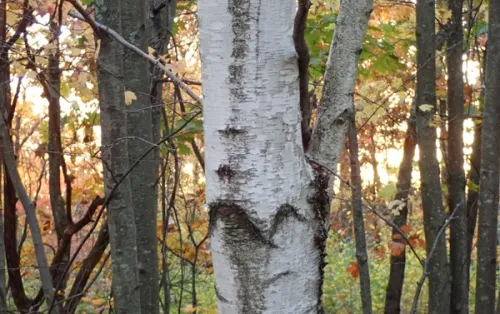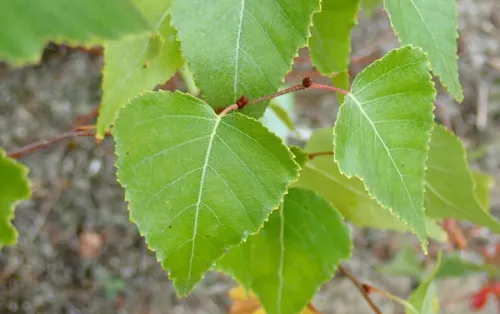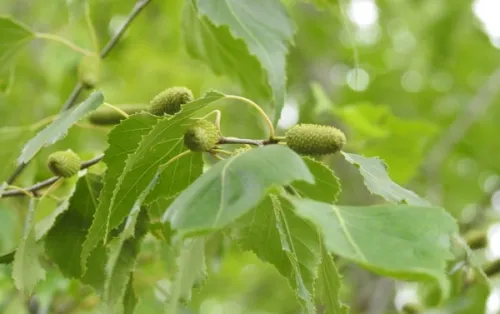Back to Glossary
Gray Birch
Betula populifolia
Gray Birch is a relatively small and fast-growing tree, typically reaching heights of just 20 to 30 feet. It is distinguished by its striking white bark, which contrasts beautifully with its dark green leaves that turn yellow in the fall. Gray Birch often grows with multiple trunks and has a somewhat delicate, airy appearance. Its small, triangular leaves flutter appealingly in the breeze, and it produces catkins in the spring, which provide early food for pollinators. This tree is well-suited to urban environments due to its tolerance of poor soil conditions and its ability to quickly colonize disturbed sites, which also makes it excellent for reforestation and naturalizing projects.
Details
Height240” - 480”
Spread180"
Bloom SeasonApril – April
Soil Types
Loam
Sand
Gravel
Soil Moisture
Medium
Moist
Wet
Sun Exposure
Part Sun
Full Sun
Range Map
Available
Not available
Ecological Benefits
Maintenance Tips
- Moderately drought-tolerant but performs best with regular watering in dry conditions.
- Minimal pruning needed. Prune in late winter or early spring to remove any damaged or diseased limbs.
- Prefers well-drained, acidic soils but is highly adaptable to a variety of soil types, including sandy and rocky soils.
- Apply a layer of mulch around the base to conserve moisture and protect roots.
- Monitor for pests and diseases, such as birch leaf miner and bronze birch borer, though gray birch is generally more resistant than other birch species.







